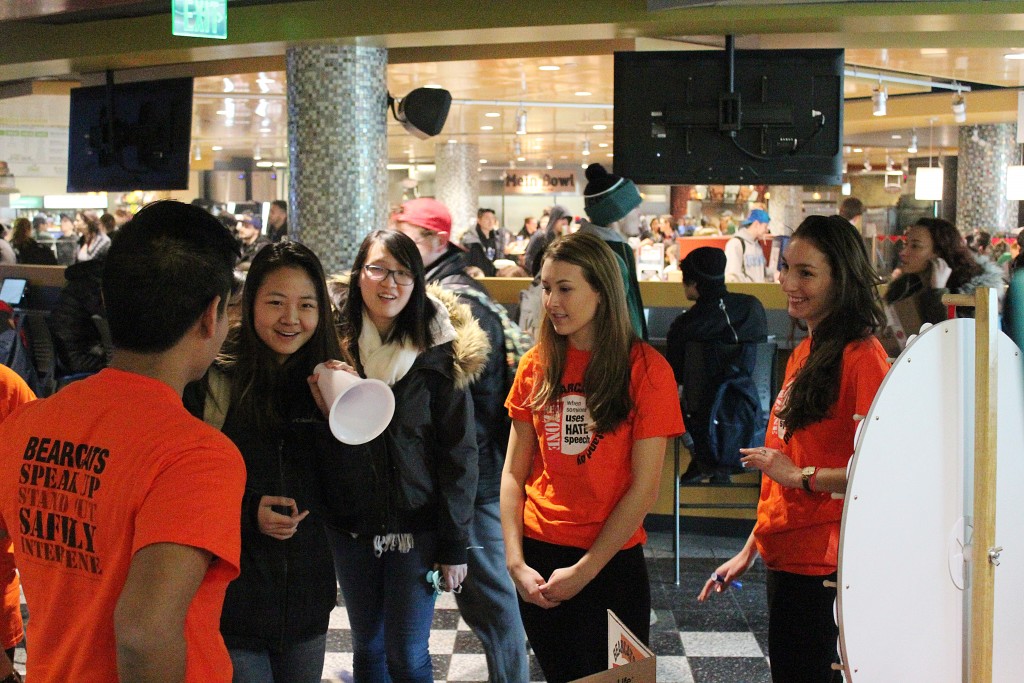
When freshmen first get to campus, they face a new, unfamiliar social scene. As a response to this, Binghamton University has adopted the Red Zone Project, a national campaign aimed at limiting peer pressure and hateful speech.
The “Red Zone” refers to the time between the beginning of the fall semester and ending after Thanksgiving break. The project aims to protect students from the pressures and associated risks of alcohol, drugs, sex and hazing during the initial weeks of college, as well as encourage students to be supportive of each other.
The year-long initiative is aimed at changing the bystander culture at BU, which is echoed in various messages it has been releasing. The most recent one: “Bearcats don’t stand by when someone uses hate speech.” The Red Zone idea is used at colleges nationwide, and it typically targets first-year students. BU, however, is targeting both upper- and underclassmen since its implementation last August.
Since that implementation, the Red Zone Project has promoted six different “Bearcats don’t stand by …” messages throughout the year. The message focuses on hate speech prevention and advocates for inclusivity. The first six aim to prevent drunk driving, violence, bullying, drug and alcohol abuse, hate speech and sexual assault. The next message will be released in April and will focus on partnering with other organizations on-campus to educate and provide mental-health support.
According to Amber Ingalls, a health educator at Decker Health Services, the Red Zone Project raises awareness about the importance of friendship.
“[The project takes] a little bit of the pressure off individual behavior, which is scary because we are responsible for our behavior,” Ingalls said. “But what can we do as a collective group to make a better place for us to live is a really important take-away, and that is what the committee is trying to accomplish. How do we change the way our community members feel while they’re here at Binghamton?”
A committee of 15 staff and faculty members, all from multiple offices within Student Affairs such as Residential Life, the Counseling Center, Health Education Office and the Alcohol and Other Drugs (AOD) Office, created the marketing and messages of the campaign last July.
Students can now also be a part of the campaign by being an advocate of the messages and getting the word out. The Red Zone Project does this by using promotional materials like posters, pins, T-shirts and stickers, as well as conversations through tabling to spread their message.
Additionally, the campaign complements other student groups like Real Education About College Health (REACH) and Mental Health Outreach Peer Educators (M-HOPE) by facilitating discussions at their events, which include workshops on mental health and tabling at university events and encouraging students to safely intervene in bad situations.
Laura Miller, a sophomore majoring in psychology, said her favorite message is “Bearcats don’t stand by when someone needs support.” She said that encouraging students to seek help or to check in on peers when noticing changes in their behavior are some of the first steps towards creating a more inclusive campus.
“No matter what you’re going through personally, academically, mentally, emotionally, etc., your peers should be there to support you,” Miller said. “This particular message encourages you to support not only your friends, but also fellow students who you might not know.”


